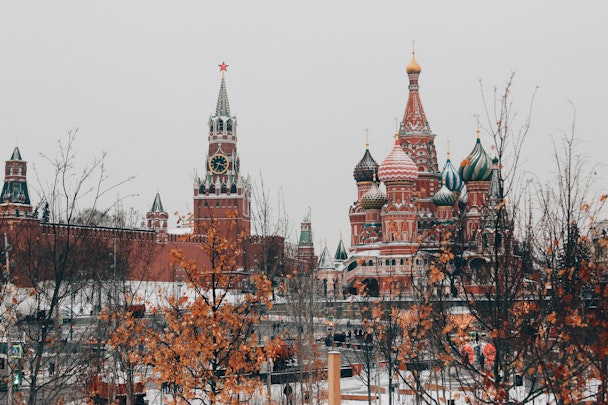How will ad agencies operating in Russia be affected by sanctions?
This week, governments across the globe put in place new economic sanctions against Russia in response to the invasion of Ukraine.

WPP, Dentsu, Publicis, Havas and IPG all have a presence in Russia / Unsplash
While those sanctions – such as the US Treasury’s decision to restrict the movement of capital and credit from western sources into Russia – are intended to produce political impacts, it’s likely they will also affect the business of international ad agencies, many of which have offices and staff in the country.
US holding company Omnicom’s agencies OMD, PHD and BBDO all have bases in Moscow, for example. Its PR agency Ketchum represented the Russian government and state-backed energy giant Gazprom as clients between 2006 and 2014.
WPP, Dentsu, Publicis, Havas and IPG all have a presence in Russia. Each company had been contacted at the time of writing; a spokesperson for WPP declined to comment.
Giulio Malegori, EMEA chief executive officer, Dentsu International, told The Drum: ”The health and safety of our people are our most important priority. While our operations in Russia continue to work as business as usual, we have been and will continue to closely monitor the impact of the situation for our people, clients and the communities we operate in. As part of this, we are focusing on supporting our clients to minimize any potential effect on their commercial activities.”
A spokesperson for American holding company Omnicom said: ”We are monitoring, and will continue to monitor, the sanctions being implemented in connection with Russia to ensure that we’re operating in compliance with all applicable laws and regulations.”
Most of the economic sanctions levied against Russia have targeted specific financial institutions or individuals, such as the UK government’s sanctions against five banks and three Russian oligarchs.
But the impact on Russia’s currency will impact agency business, subjecting subsidiaries to unfavorable exchange rates. The rouble fell to 80 to the dollar and 90 to the euro today, as the markets responded to sanctions.
George A Lopez, emeritus professor of peace studies at the University of Notre Dame, told The Drum: ”Any US company operating in Russia is about to face cash movement problems and shortages due to banking sanctions; lots of time trying to find out from OFAC when, and if, some of their existing financial exchanges and product movements are violating sanctions; and various other problems of working with various Russian subsidiaries involved in product development, out trade and transport of our goods, and, for these companies, their advertisers will be under increased pressure to paint a picture of normality that exists less and less each day.”
The Japanese government’s decision to restrict travel from Russia to Japan, for example, might well impact Dentsu Inc’s operations in Moscow, which have expanded in recent years. In 2020, it embarked on a joint venture with OKS Group in order to grow its business across the Eurasia region, and Carat, Dentsu X, Posterscope, iProspect and Isobar all currently operate in Russia.
Further sanctions might begin to hit agency clients within the country, potentially endangering client relationships, said Lopez. ”As an ad agency involved with any of these companies, they will have their own repercussions in money exchanges and the changing value of money as sanctions bite more; possibly some economic actors in media and transport will come under sanctions, and thus force them to find other local partners for certain ad functions.”
In the longer term, holding company subsidiaries might have to bear increased hostility from local security services as part of a broader “punishment“ against US and international business, said Lopez. “If you are a US advertising business in Moscow the issue quickly can become whether you are simply closed, or the ‘office seized‘ or US personnel deported – or worse, arrested.“
Following the invasion of Ukraine by Russian military forces on 24 February, agencies with staff in the country are focusing on safety concerns. Sir Martin Sorrell, executive chairman of Media.Monks parent S4 Capital, said: ”We’re trying to make sure our people and their families in Ukraine are as safe as possible. We have been in constant communications with all our Monks today across the world. We are all obviously very concerned about our colleagues and all in the Ukraine.”
Additional reporting by Kendra Clark. This article was last updated 28 February.

